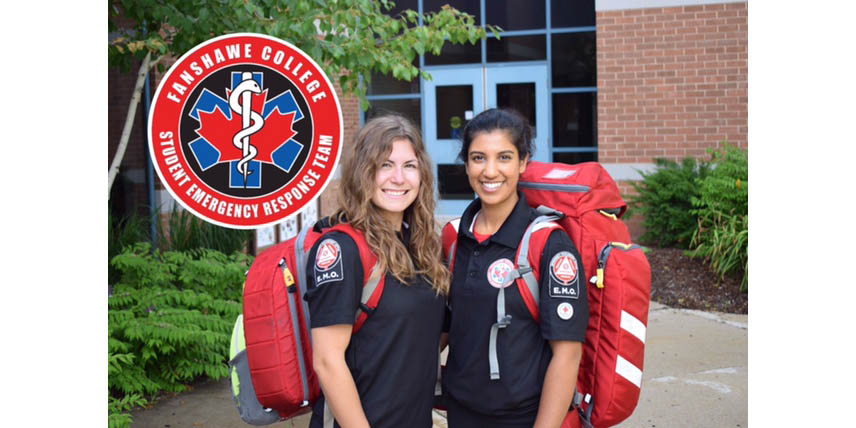Fanshawe's SERT gears up for another year
 CREDIT: CHEEKSPHOTOGRAPHY
CREDIT: CHEEKSPHOTOGRAPHYThe student emergency response team (SERT) provides students with a hands-on learning experience and immediate assistance for medical emergencies.
As the new school year begins, the Student Emergency Response Team (SERT) will be gearing up for another year of providing students with a hands on learning experience and medical assistance on campus.
Brent Arsenault, emergency planning, fire and life safety specialist at Fanshawe and co-ordinator of SERT spoke with the Interrobang about how SERT works and the benefits of having something like this on campus.
“They work in teams of two so one student will go to class with a trauma pack and the other student will go with an automated external defibrillator. They wear an earpiece radio and are given a uniform and they essentially learn in class in that environment,” Arsenault said. “If they get dispatched out to do a medical call, they will do the medical call and complete the necessary forms and documentation and then return back to class when it is done.”
Volunteers on the SERT team are required to work a four hour shift each week and shifts range from 8 a.m. to 3 a.m. with coverage on the weekends. Students are able to choose their own shifts and they can fall within their class time.
Arsenault discussed that people often assume the SERT team is only for students in the paramedic program. However, it is geared toward every student and the team accepts people enrolled in any program at the college.
“You have to have basic first aid and we train each person at the first responder level. They will actually go to medical calls here on campus and it is absolutely free of charge,” Arsenault said. “It is volunteer and augments the education so you can do it while you are in class.”
The SERT program runs every year from September to June 1 and aims to provide students with an opportunity to grow. “It gives students a chance to gain experience in a tactile environment. For instance, you can be taking a health class where you are learning about bones and joints versus actually going to the call and dealing with it in a hands on approach,” Arsenault said. “It benefits the students to provide them with experience that they can take with them into their career.”
According to Arsenault, although the focus of the program is to benefit students, the SERT team also has a positive impact on the college and the city of London.
“There is no doubt it benefits the college because we have trained professionals onsite that can help with the medical,” Arsenault said. “It also decreases the amount of calls going to 911, so it also benefits the external college community because paramedics won’t have to, for lack of a better term, waste their time for someone who may just have a strain or sprain.”
The SERT program currently only runs at the main campus in London including servicing Y and Z buildings. Arsenault said that there is a potential for expanding the program to accommodate the rest of the campuses but brought attention to the fact that paramedics are closer to the downtown campus than the SERT team would be.
For students who are interested in applying, you can get more information at the emergency management office portal page.
Resumes and applications are being accepted the first two weeks of September and can be dropped off at the security control center located at D1027.














